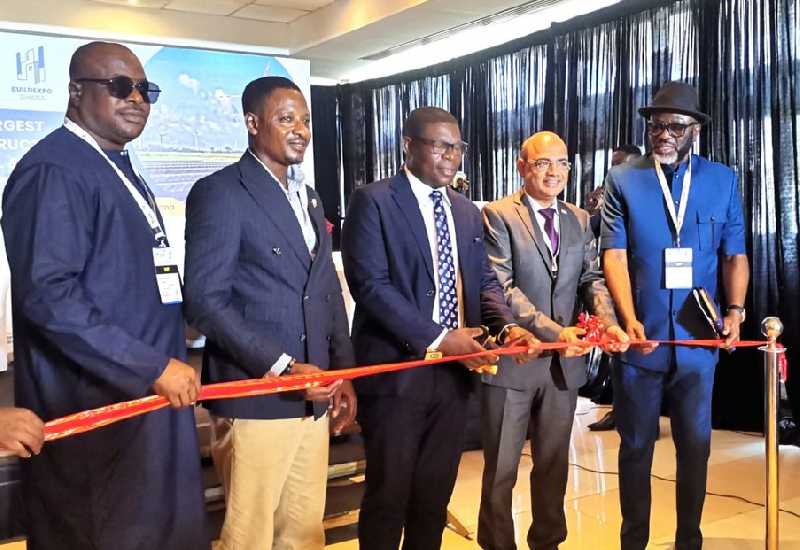
The Indian Government has welcomed the elevation of bilateral ties with Ghana to the level of a comprehensive partnership, promising to assist the country for a successful energy transition.
Mr Manish Gupta, the Indian High Commissioner, said the authorities would work jointly under the new partnership framework, sharing development experiences and technology transfer to achieve a breakthrough in Ghana’s renewable energy strategies.
The growing importance of renewable energy could not be overlooked given its implications in industrialisation and other sectors of the economy, he noted in an address at the fourth edition of the Power Energy Ghana Expo in Accra.
“Its implications for the agricultural sector, especially in the north, and the vast hinterlands are enormous.
“I have travelled to see the benefits of the solar-powered irrigation facilities, decentralised mini-grids that can really change the fortunes of the northern regions of this country.
“So, these are the areas we can certainly look forward to working with the people. Also, when businesses and industry become part of it, you get access to those knowledge transfers which are happening all over the place, the new developments that you get access to,” the High Commissioner said.
Ghana’s energy transition agenda aims to achieve net-zero energy-related carbon emissions by 2060, focusing on renewable energy expansion, local empowerment, and sustainable development.
The plan emphasises the deployment of low-carbon solutions across key sectors, including oil and gas, industry, transport, cooking, and power, with the objective to increase the share of renewable energy (solar, wind, wave and biofuel) from one per cent to 18 per cent of the national energy mix by 2047.
The blueprint is expected to boost the country’s capacity not only to meet the power demand, which grows at 12-14 per cent every year, but also to export electricity to neighbouring countries to accelerate growth and improve the Gross Domestic Product (GDP).
According to the Ministry of Energy and Green Transition, Ghana’s year-on-year power demand grows by some 10 to 15 per cent, with supply generally not meeting set targets.
The expanding industrial sector, service sector, especially in banking, communication, and hospitality services, rapid urbanisation, the growth of the middle class, and growing incomes, together with overall population growth (about 2.3 per cent per annum), have become major drivers of increasing electricity demand in recent times.
High Commissioner Gupta said another area being given critical attention under the comprehensive partnership was infrastructural development.
That, he said, aligned with the Ghana Government’s ‘Big Push Agenda’, emphasising on massive development in the road and rail sectors to enhance a broad-based socio-economic growth.
“Once you develop infrastructure, you will realise a whole host of ancillary industries for the benefit of the people,” the diplomat stated.
Mr Richard Gyan-Mensah, Deputy Minister of Energy and Green Transition, affirmed the Government’s commitment to develop incentives to attract manufacturers, assemblers, and other operators in the renewable energy subsector.
“Here in Ghana, we recognise that energy is the backbone of industrialisation – every factory that opens, every business that expands, and every home that lights up is powered by the silent force of electricity and infrastructure.
“That is why Government continues to prioritise reforms, innovation, and private sector collaboration to build a more resilient, inclusive, and future-ready energy economy.
The country’s power sector faces a host of challenges, including inadequate power supply infrastructure that requires huge investment, over-reliance on hydro and gas, high cost of fuel for electricity generation, transmission and distribution losses.
The Deputy Minister indicated that the authorities were currently accelerating renewable energy adoption, including the localisation of solar assembly lines and battery storage solutions.
He assured that in its bid to be a gateway for supplying power to neighbouring countries which did not have the resources to generate electricity, Ghana was bent on harnessing renewable sources for power generation, with solar photovoltaic and wind energy being the priority.
On the 2025 edition of the Power Energy Ghana Expo, dubbed ‘BuildExpo Ghana’, the Deputy Minister lauded the Indian Government for the collaborative work, saying the array of exhibitors was indicative of the growing importance of renewable energy.
The programme, organised by Synergice Events Private Limited under the auspices of the Ministries of Energy and Green Transition, Trade and Industry, attracted more than one hundred exhibitors from Africa, Europe, United States (US), China, India, and other continents.
The BuildExpo Ghana is fast establishing itself as West Africa’s largest building and construction, power, electrical and energy exhibition.
This year’s programme provided the requisite platform for global manufacturers and exporters of all products and items related to power, energy, electrical and engineering to exhibit and meet with their partners and distributors, as well as customers in the sub-Region.
